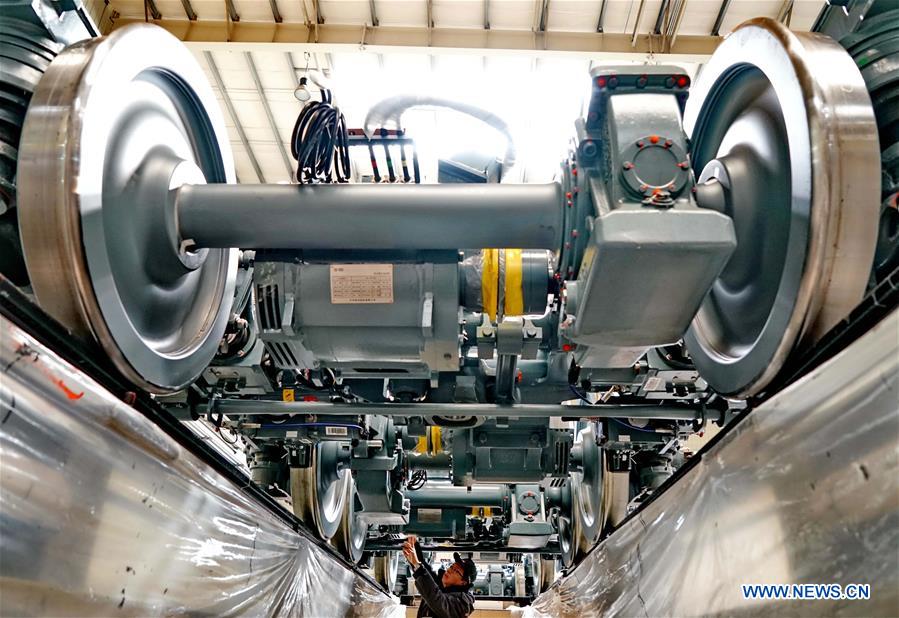A considered judgement of Trump's claims against China
- By Elenoire Laudieri
 0 Comment(s)
0 Comment(s) Print
Print E-mail China.org.cn, April 26, 2018
E-mail China.org.cn, April 26, 2018
A primary concern of a sound government is the prosperity of its people, and high employment is crucial to this end. No society can thrive on low employment, which tends to bring forth a loss of trust in the government and can eventually cause social unrest and political instability.

The big success story of China has been the extensive employment growth it's generated since opening up its economy and becoming a manufacturing-driven and export-lead powerhouse. The vision behind the introduction of the historic reforms that led to China's economic boom was that the country should function for the sake of "The People," rather than for the sole gain of big corporations and individual entrepreneurs. At the outset of the reforms in 1978, China was a poor country. It had a GDP per capita less than half of the Asian average and a third of the African average.
Since then, 800 million people have been lifted out of poverty -- an unparalleled achievement in the history of humankind that was attained with a massive increase of employment sustained by a growing domestic market and large volumes of exports, particularly to Europe and the United States.
China has become the world's second largest economy by nominal GDP, but it also has the world's biggest population, which means that it must divide its wealth among almost 1.4 billion people. This and other factors have to be taken into account to make a considered judgement about President Trump's claims against China regarding tariffs and trade.
The United States has a large trade deficit with China ($375 billion in 2017), but a lot of imports from China are made by U.S. manufacturing companies that send raw materials and unfinished products to China for low-cost assembly, which are considered imports when shipped back to the U.S.
China is one of the largest providers of foreign direct investments (FDI), which means that a significant part of the profits made from exports helps the economies of the rest of the world. Between 2005 and 2016 China's total global investment and construction activities amounted to a value of about $1.2 trillion, the largest part of which went to Asia, followed by sub-Saharan Africa, Europe and North America. A big slice of China's FDI comes in the form of development finance. Huge investments for BRI (Belt and Road Initiative) are generating inclusive growth and development across Central Asia. In Latin America, China has outstripped the loans given by the World Bank and the Inter-American Development Bank combined. China has practically doubled the available financial capital for development finance globally over the past decade and accounts for more such loans than the world's six major multilateral institutions combined.
Another aspect to be considered is that a great deal of the U.S. trade deficit is financed by China itself. Chinese loans to the U.S., through the purchase of U.S. treasury bills, enable Americans to buy Chinese products at a cheap price. It's a win-win situation, as China gets a huge market for its products and the U.S. benefits from the economical prices of Chinese goods. Beyond President Trump's boasting, both nations are locked in a state of interdependence from which they both benefit and which is likely to continue.
Indirectly addressing President Trumps complaints, China's President Xi Jinping, with his customary foresight, hosed the dispute down announcing a number of anti-protectionist measures that will further open up the world's number two economy.
Speaking recently at the Boao Forum for Asia on the southern island of Hainan, he said that China intends to go ahead with market reforms. He reiterated that "economic globalization is an irreversible trend of the time" and unambiguously declared that "China will take down its trade barriers because it is the right thing to do." Some Western commentators have suggested that Chinese officials have promised many of the measures in the past with little action. Washington says it has grown tired of China's unfulfilled pledges, but they forget that China is a socialist market economy and any economic reform affecting employment requires a gradual and judicious implementation.
Elenoire Laudieri Di Biase ( Twitter account: @ElaudierLaudier ), is a sinologist and Scholar from the university of Ca' Foscari and Melbourne University, Australia. The author is an expert on international diplomacy and psychoanalysis. Chief Chinese Analyst on China at the Nato Defense College Foundation & Foreign Affairs Writer.
Opinion articles reflect the views of their authors only, not necessarily those of China.org.cn.






Go to Forum >>0 Comment(s)